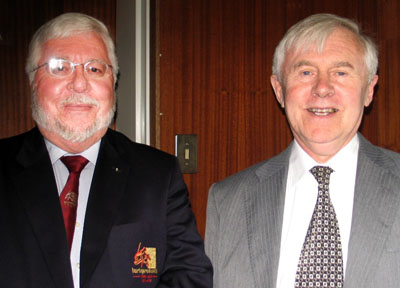Latest News Archive
Please select Category, Year, and then Month to display items
14 June 2024
|
Story Anthony Mthembu
|
Photo Suplied
 Jeremiah Hlahla, a UFS student completing his PhD in Botany at the University of Debrecen as part of an exchange initiative funded by the Erasmus+ Mobility Programme.
Jeremiah Hlahla, a UFS student completing his PhD in Botany at the University of Debrecen as part of an exchange initiative funded by the Erasmus+ Mobility Programme.
As part of an exchange initiative facilitated by the Erasmus+ Mobility Programme, Jeremiah Hlahla, a student at the University of the Free State (UFS), is nearing the completion of his PhD studies at the University of Debrecen in Hungary. Hlahla’s journey, which began in February 2024 and is set to conclude in July 2024, has been a remarkable learning opportunity. “As a first time-traveller to Europe, I have thoroughly enjoyed engaging with people from different countries and cultures,” he said.
The benefits of international collaboration
Hlahla is currently pursuing a PhD in Botany, focusing on plant stress physiology. “My current PhD project investigates the physiological, biochemical and morphological responses of vegetable-type soybean, or edamame, to combined drought and heat stress,’’ he explained. He considers the University of Debrecen the ideal institution to complete his research due to its extensive expertise and resources in similar projects. He noted that his colleagues at Debrecen conduct significant work on plant protection against biotic and abiotic stresses, including salt and drought stress, as well as proteins and amino acids in barley and other legumes.
Given the vast knowledge available on similar projects, Hlahla has found substantial engagement with his work at the University of Debrecen. “Upon arrival, I delivered an introductory lecture presenting my UFS project on the synergistic effects of combined drought and heat stress on the physiology and biochemistry of edamame. It was an engaging session as everyone could relate to my work and asked many questions,’’ he said.
Insights gained from the exchange
Hlahla has also gained valuable lessons that will assist him in his research career, including biotechnology and physiology tools. “I learned how to prepare samples and use high-performance liquid chromatography (HPLC) and reversed-phase ultra-high-performance liquid chromatography (UHPLC) to quantify proteins and amino acids,’’ he said. These techniques are beneficial not only for his current work but will also support future soybean research.
As his experience at the University of Debrecen nears its end, Hlahla reflects on the collaborations and friendships he has formed, which stand out as a significant highlight.
First lecture in Law Dean's series presented
2010-10-22
 |
Prof. Johan Henning, Dean of the Faculty of Law at the UFS and Prof. Johan Farrar, a well respected Corporate Law Specialist, at the recent first lecture in the Law Dean’s Prestige Lecture Series.
Photo: Lize du Plessis
|
| Prof. John Farrar, a well respected Corporate Law Specialist of high international repute, delivered the first lecture in the Law Dean’s Prestige Lecture Series at the University of the Free State (UFS). The theme of his paper was Directors’ duties of care – Issues of classification, solvency and business judgement and the dangers of legal transplants.
The topic is of the utmost importance to South African lawyers in view of the very contentious provisions of the new Companies Act 71 of 2008 endeavouring to introduce the business judgement rule into South African Company Law if and thus reforming company directors’ common law duties of care and skill, if when this legislation at long last becomes operative.
Prof. Farrar is a professor of Corporate Governance at the University of Auckland Business School, and joint director of the New Zealand Governance Centre. These are part-time roles and the remainder of his time is spent as emeritus professor of Law at Bond University, Queensland.
Prof. Farrar has extensive experience in Commercial Law Reform, having, for example, acted as a consultant to the New Zealand Treasury, the Law Commission, the Business Council of Australia and the UK Department of Trade and Industry.
|